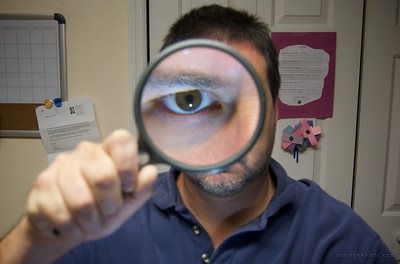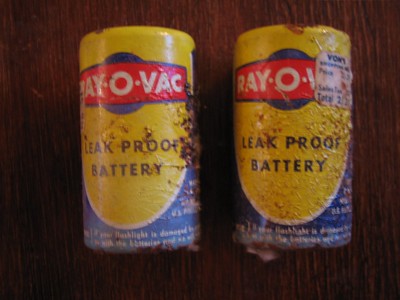Posts Tagged ‘Vacation’
Do you create the conditions for decisions to be made without you?
 What does your team do when you’re not there? Do they make decisions or wait for you to come back so you can make them?
What does your team do when you’re not there? Do they make decisions or wait for you to come back so you can make them?
If your team makes an important decision while you’re out of the office, do you support or criticize them? Which response helps them stand taller? Which is most beneficial to the longevity of the company?
If other teams see your team make decisions while you are on vacation, doesn’t that make it easier for those other teams to use their good judgment when their leader is on vacation?
If a team waits for their leader to return before making a decision, doesn’t that slow progress? Isn’t progress what companies are all about?
When you’re not in the office, does the organization reach out directly to your team directly? Or do they wait until they can ask your permission? If they don’t reach out directly, isn’t that a reflection on you as the leader? Is your leadership helping or hindering progress? How about the professional growth of your team members?
Does your team know you want them to make decisions and use their best judgment? If not, tell them. Does the company know you want them to reach out directly to the subject matter experts on your team? If not, tell them.
If you want your company to make progress, create the causes and conditions for good decisions to be made without you.
Image credit – Conall
What does work look like?
 What does work look like when you prioritize your happiness?
What does work look like when you prioritize your happiness?
When it’s announced that open positions will not be backfilled to meet the practical realities of a recession, you reduce the scope of your projects and push out their completion dates to match the reduction in resources. And the impact on your career? I don’t know, but the people that work for you and everyone else that knows how the work is done will move mountains for you.
Under the banner of standard work, you are given the same task as the one you just completed. Sure, you can do it efficiently and effectively, but if you do that same work one more time, your brain will fall off. So, instead of doing it yourself, you give the work to a lesser-experienced person who is worthy of investment and help them get the work done. They get to learn new skills and the work is done well because you keep them on the straight and narrow. And you get to be a teacher and create a future leader that the company will need in a couple of years. And the downside? The work takes a little longer, but so what.
What does work look like when you prioritize your health?
When an extra-early meeting is scheduled because everyone’s regular day is already fully booked with meetings, you decline the meeting so you can get the recommended amount of sleep recommended by the health professionals. And the negative consequences to your career progression? Well, that’s a choice for your company.
When you get home from work, you disconnect your phone from the company network so you won’t be distracted by work-related interruptions. Because you separated yourself from work, after dinner is cleaned up you can make a healthy lunch for tomorrow. If there’s some downside risk to your career, find another company to work for.
What does work look like when you prioritize your family?
When an extra-late meeting is scheduled because everyone’s regular day is already fully booked with meetings, you decline the meeting so you can cook dinner and eat with your family. The conversation with the kids is mundane and meaningful and ten years from now they’ll be better for it. And the negative consequences? None, because tomorrow morning you can read the minutes of the meeting.
When you’re on your yearly holiday with your family and your boss calls your cell phone to ask you to come back to work early to deal with an emergency, you don’t answer the call and let it go to voicemail. Then, when you get back to the office after vacation, you listen to the voicemail and check in with your boss. And because you didn’t pick up the call, someone else had greatness thrust upon them and developed into someone who can solve emergencies. Now there are two of you. And the downside? Well, I think that depends on your boss.
“Looking For Clues (188 / 365)” by somegeekintn is licensed under CC BY 2.0.
It’s time to charge your battery.
 When a car’s battery is low and doesn’t have enough energy to start the car, you change your expectations about travel plans, hook up the battery to a charger and give it the time it needs to charge. You don’t keep trying to start the car because the already tired battery gets more tired. You know the signs – every time you turn the key, the engine turns more slowly and at some point, the slow whirring decays into a clicking of the solenoid.
When a car’s battery is low and doesn’t have enough energy to start the car, you change your expectations about travel plans, hook up the battery to a charger and give it the time it needs to charge. You don’t keep trying to start the car because the already tired battery gets more tired. You know the signs – every time you turn the key, the engine turns more slowly and at some point, the slow whirring decays into a clicking of the solenoid.
People don’t run on batteries, but like batteries, we sometimes run low on cranking power. But where we accept the reality that sometimes a car battery will not start the car, we don’t see the degradation of people’s performance the same way. Sure, the signs are more subtle – reduced ability to concentrate, reduced productivity, variability in output, and the like – but the signs are there for all to see. And where the car simply refuses to start, sometimes people blame themselves for their low battery and over-exert themselves to keep the projects moving, even when it’s not in their best interest.
It’s vacation season. Take the time you need to charge your battery and don’t feel guilty about it. Try to hold onto the fact that you’re not helping things in the long run by blocking yourself from the rest you need now. And, sure, you’re good at your job, but the company can handle things while you’re on holiday. Or, better yet, why not flip it on its head and declare your time away as a growth opportunity for someone on your team to fill in for you and test drive your job?
They will get the chance to interact with different people in the organization and likely get a broader picture of what’s going on at the company. They will get a chance to share their thoughts and ideas, which will feel good, and other leaders will see them in action. It’s a win for everyone.
And while you’re away, don’t check in. That’s just like pulling the plug on the battery charger before it has a chance to do its work.
“Old Ray-O-Vac Batteries” by deanj is licensed under CC BY 2.0.
Taking vacations and holidays are the most productive things you can do.
 It’s not a vacation unless you forget about work.
It’s not a vacation unless you forget about work.
It’s not a holiday unless you leave your phone at home.
If you must check-in at work, you’re not on vacation.
If you feel guilty that you did not check-in at work, you’re not on holiday.
If you long for work while you’re on vacation, do something more interesting on vacation.
If you wish you were at work, you get no credit for taking a holiday.
If people know you won’t return their calls, they know you are on vacation.
If people would rather make a decision than call you, they know you’re on holiday.
If you check your voicemail, you’re not on vacation.
If you check your email, you’re not on holiday.
If your company asks you to check-in, they don’t understand vacation.
If people at your company invite you to a meeting, they don’t understand holiday.
Vacation is productive in that you return to work and you are more productive.
Holiday is not wasteful because when you return to work you don’t waste time.
Vacation is profitable because when you return you make fewer mistakes.
Holiday is skillful because when you return your skills are dialed in.
Vacation is useful because when you return you are useful.
Holiday is fun because when you return you bring fun to your work.
If you skip your vacation, you cannot give your best to your company and to yourself.
If neglect your holiday, you neglect your responsibility to do your best work.
Don’t skip your vacation and don’t neglect your holiday. Both are bad for business and for you.
“CatchingButterflies on Vacation” by OakleyOriginals is licensed under CC BY 2.0
What if you were gone for a month?
 If you were out of the office for a month and did not check email or check in, how would things go?
If you were out of the office for a month and did not check email or check in, how would things go?
Your Team – Would your team curl up into a ball under the pressure, or would they use their judgement when things don’t go as planned? I think the answer depends on how you interacted with them over the last year. If you created an environment where it’s a genius and a thousand helpers, they won’t make any decisions because you made it clear that it’s your responsibility to make decisions and it’s their responsibility to listen. But if over the last year you demanded that they use their judgement, they’ll use it when you’re gone. Which would they do? How sure are you? And, how do you feel about that?
Other Teams – Would other teams reach out to your team for help, or would they wait until you get back to ask for help? If they wait it’s because they know you make all the decisions and your team is voice actuated – you talk and they act. But if other teams reach out directly to your team, it’s because over the last years you demonstrated to your team that you expect them to use their good judgement and make good decisions. Would other teams reach out for help or would they wait for you to get back? How do you feel about that?
Your Boss – Would your boss dive into the details of the team’s work or leave the work to the team? I think it depends on whether you were transparent with your boss over the last years about the team’s capability. If in your interactions you took credit for all the good work and blamed your team for the work that went poorly, your boss will dig into the details with your team. Your boss trusts you to do good work and not your team, and since you’re not there, your boss will think the work is in jeopardy and will set up meetings with your team to make sure the work goes well. But if over the last years you gave credit to the team and communicated the strengths and weaknesses of the team, your boss will let the team do the work. Would your boss set up the meetings or leave your team to their work? How sure are you?
To celebrate my son’s graduation from engineering school, I am taking a month off from work to ride motorcycles with him. I’m not sure how it will go with my team, the other teams and my boss, but over the last several years I’ve been getting everyone ready for just this type of thing.
Image credit — Biker Biker
Is your tank empty?
 Sometimes your energy level runs low. That’s not a bad thing, it’s just how things go. Just like a car’s gas tank runs low, our gas tanks, both physical and emotional, also need filling. Again, not a bad thing. That’s what gas tanks are for – they hold the fuel.
Sometimes your energy level runs low. That’s not a bad thing, it’s just how things go. Just like a car’s gas tank runs low, our gas tanks, both physical and emotional, also need filling. Again, not a bad thing. That’s what gas tanks are for – they hold the fuel.
We’re pretty good at remembering that a car’s tank is finite. At the start of the morning commute, the car’s fuel gauge gives a clear reading of the fuel level and we do the calculation to determine if we can make it or we need to stop for fuel. And we do the same thing in the evening – look at the gauge, determine if we need fuel and act accordingly. Rarely we run the car out of fuel because the car continuously monitors and displays the fuel level and we know there are consequences if we run out of fuel.
We’re not so good at remembering our personal tanks are finite. At the start of the day, there are no objective fuel gauges to display our internal fuel levels. The only calculation we make – if we can make it out of bed we have enough fuel for the day. We need to do better than that.
Our bodies do have fuel gages of sorts. When our fuel is low we can be irritable, we can have poor concentration, we can be easily distracted. Though these gages are challenging to see and difficult to interpret, they can be used effectively if we slow down and be in our bodies. The most troubling part has nothing to do with our internal fuel gages. Most troubling is we fail to respect their low fuel warnings even when we do recognize them. It’s like we don’t acknowledge our tanks are finite.
We don’t think our cars are flawed because their fuel tanks run low as we drive. Yet, we see the finite nature of our internal fuel tanks as a sign of weakness. Why is that? Rationally, we know all fuel tanks are finite and their fuel level drops with activity. But, in the moment, when are tanks are low, we think something is wrong with us, we think we’re not whole, we think less of ourselves.
When your tank is low, don’t curse, don’t blame, don’t feel sorry and don’t judge. It’s okay. That’s what tanks do.
A simple rule for all empty tanks – put fuel in them.
Image credit – Hamed Saber
Complaining isn’t a strategy.
 It’s easy to complain about how things are going, especially when they’re not going well. But even with the best intentions, complaining doesn’t move the organization in a new direction. Sometimes people complain to attract attention to an important issue. Sometimes it’s out of frustration, sometimes out of sadness and sometimes out of fear, but it’s never the best mechanism.
It’s easy to complain about how things are going, especially when they’re not going well. But even with the best intentions, complaining doesn’t move the organization in a new direction. Sometimes people complain to attract attention to an important issue. Sometimes it’s out of frustration, sometimes out of sadness and sometimes out of fear, but it’s never the best mechanism.
If the intention is to convey importance, why not convey the importance by explaining why it’s important? Why not strip the issue of its charge and use an approach and language that help people understand why it’s important? It’s a simple shift from complaining to explaining, but it can make all the difference. Where complaining distracts, explaining brings people together. And if it’s truly important, why not take the time to have a give-and-take conversation and listen to what others have to say? Instead of listening to respond, why not listen to understand?
If you’re not willing to understand someone else’s position it’s not a conversation.
And if you’re on the receiving end of a complaint, how can you learn to see it as a sign of importance and not as an attack? As the receiver, why not strip it of its charge and ask questions of clarification? Why not deescalate and move things from complaint to conversation? Understanding is not agreeing, but it still a step forward for everyone.
When two sides are divided, complaining doesn’t help, even if it’s well-intentioned. When two sides are divided and there’s strong emotion, the first step is to take responsibility to deescalate. And once emotions are calmed, the next step is to take responsibility to understand the other side. At this stage, there is no requirement to agree, but there can be no hint of disagreement as it will elevate emotions and set progress back to zero. It’s a slow process, but when the issues are highly charged, it’s the fastest way to come together.
If you’re dissatisfied with the negativity, demonstrate positivity. If you want to come together, take the first step toward the middle. If you want to generate the trust needed to move things forward, take action that builds trust.
If you want things to be different, look inside.
Image credit – Ireen2005
Preventive Maintenance for People
 A car has a warning light to protect its engine from running too hot, and when the light goes off you pull over immediately and shut it down. You made a big investment in your car, and you want to make sure it runs for a long time. You respect the warning light. And if you’re late to work because your car overheated, everyone understands. They respect the warning light.
A car has a warning light to protect its engine from running too hot, and when the light goes off you pull over immediately and shut it down. You made a big investment in your car, and you want to make sure it runs for a long time. You respect the warning light. And if you’re late to work because your car overheated, everyone understands. They respect the warning light.
What if you had a warning light? What if you wore a sensor that’s wirelessly connected to your phone that measures your pulse or blood pressure, and your phone flashed a warning light when things get too hot? Would it be okay if you shut down immediately and went home? You and your company have made a big investment in you, and you want to make sure you run for a long time. Would you respect the warning light? Would your company respect the warning light? What’s the difference between a warning light for a car and a warning light for a person?
All machines come with an owner’s manual. In the manual, the manufacturer provides clear instructions on how to take care of the product so it runs well. Tighten the bolts every month, clean and inspect the electrical connections every six months and replace the wear parts per the table in the manual. And if you follow the instructions, the machine will run as advertised. But if you don’t follow the maintenance schedule, expect degraded performance or an unplanned breakdown. Everyone knows the machine must be shut down regularly for maintenance, or it won’t run right.
What if you had an owner’s manual, with clear instructions on how to take care of yourself? How about eight hours of sleep, balanced diet, exercise and some fun? And if you follow the instructions, you will run as advertised. But if you don’t, shouldn’t you and your company expect degraded performance and unplanned downtime? Doesn’t everyone know you must shut down regularly for maintenance or you won’t run right?
I want to perform as advertised, so I’m shutting down for vacation.
Image credit – Mark Fischer
When on vacation, be on vacation.
 As vacation approaches the work days drag. Sure you’re excited about the future, but when compared to the upcoming pleasantness, the daily grind feels more like a prison. Anticipating a good time in the future rips you from the present moment and puts you in a place you’d rather be. And when you don’t want to be where you are, wherever you are becomes your jail cell.
As vacation approaches the work days drag. Sure you’re excited about the future, but when compared to the upcoming pleasantness, the daily grind feels more like a prison. Anticipating a good time in the future rips you from the present moment and puts you in a place you’d rather be. And when you don’t want to be where you are, wherever you are becomes your jail cell.
Mid-way through vacation, as the work days approach, you push yourself into the future and anticipate the stress and anxiety of the work day. Though vacation should be fun, the stress around the workday and the impending loss of vacation prevent your full engagement in the perfect now. I’m not sure why, but for some reason your brain doesn’t want to be on vacation with you. It’s difficult to think of your perfect vacation as your jail cell, but while your brain is disembodied, I think it is.
And when vacation is over and you return to work, it’s pretty clear you’re back in jail. You put yourself back in the past of your wonderful vacation; compare your cubicle your previous poshness; and make it clear to yourself that you’d rather be somewhere else. And the better your vacation, the longer your jail time.
But it’s easier to see how we use unpleasant situations to build our jail cells. Our aversion to uncomfortable situations pushes us into the past to beat ourselves up over uncontrollable factors we think we should have recognized and controlled. We turn a simple unpleasant situation into a jail cell of self-judging. Or, we push ourselves into the future and generate anxiety around a sea of catastrophic consequences, none of which will happen. Instead of building jails, it’s far more effective to let ourselves feel the unpleasantness for what it is (the result of thoughts of our own making) and let it dissipate on its own.
The best way to become a jail breaker is to start with awareness – awareness your mind has left the present moment. When you’re on vacation, be on vacation. And when you’re in the middle of an unpleasant situation, sit right there in the middle of the unpleasant situation. (No one has ever died from an unpleasant situation.) And, as a skillful jail breaker, when you realize your mind is in the past or future, don’t judge yourself, praise yourself for recognizing your mind’s unintended time travel and get back to your vacation.
But this is more than a recipe for better vacations. It’s a recipe for better relationships and better work. You can be all-in with the people you care about and you can be singularly focused on the most challenging work. When someone is standing in front of you and you give them 100% of your attention, your relationship with them improves. And when you give a problem 100% of your attention, it gets solved.
Think about the triggers that pull and push you out of the present moment (the dings of texts, the beeps of emails, or the buzzes of push notifications) and get rid of them. At least while you’re on vacation.
Thoughts on Vacation
Take fewer longer vacations at the expense of shorter ones.
Work hard, but on something else.
On route to your destination, throw your cell phone from a moving vehicle.
Forget about your work so you can do it better when you return.
Don’t check in at work – that undoes all the relaxation.
Vacation with kids, and take your cues from them.
Recharge your brain.
 Battery life of cell phones is horrific. We’re sold on high functionality, communication speed, and beautiful, bright screens, but with all systems up, the phone cannot deliver; we get about half a day. We pare down functionality, and try to make it through the day; we shut off regular requests for updates; we shut down our network connections; dim our screens to save energy. All the high functionality that defines the phone cannot be realized; the functionality that sets it apart from others, the stuff that others only dream of, cannot be realized. Our special capability cannot be used to do our jobs to the fullest; it cannot be used to do our jobs like we know we can.
Battery life of cell phones is horrific. We’re sold on high functionality, communication speed, and beautiful, bright screens, but with all systems up, the phone cannot deliver; we get about half a day. We pare down functionality, and try to make it through the day; we shut off regular requests for updates; we shut down our network connections; dim our screens to save energy. All the high functionality that defines the phone cannot be realized; the functionality that sets it apart from others, the stuff that others only dream of, cannot be realized. Our special capability cannot be used to do our jobs to the fullest; it cannot be used to do our jobs like we know we can.
Another tactic is the power nap – the quick charge in the middle of the day to get us through the crisis. Commandeer a power outlet in a quiet corner, and settle in for a little charge. (Ahh, it feels good to charge up on someone else’s nickel.) But it’s not right that we must ration our capacity for a narrow slice of the day, to save up for a flurry of high-end activity (especially Angry Birds); we should be able to go all day. But we can’t because expectations are out of line with our capability. In this new era of high power draw, our batteries cannot deliver. We must change our behavior.
Nothing beats a regular charge – home at a regular time, turn off the phone, plug in for an uninterrupted charge, and wake up in the morning fully refreshed and ready for full output. For the whole day it’s unique, innovative functionality, all communication networks up and running, and full screen brightness. That’s what you’re paid for, and that’s what you deliver – every day. But if you skip your full charge cycle, even one, it’s back into the unhealthy cycle of half-day battery life and dimmed screens. This is not a good for you, and not a good value for your company. You (and they) need you doing the things only you can do; they (and you) need you contributing at full brightness. Maintaining the regular charge cycle takes discipline, but, over the long term it’s the most productive and enjoyable way to go.
In the new lithium-ion world, we’ve forgotten a hard-learned lesson of the lead-acid era – the trickle charge. With the trickle charge, the battery is taken fully off-line, fully disconnected from the world, with no expectation of output of any kind, and hard-connected to a big charger, a special charger. This charger is usually located in a remote location and hard-wired into a dedicated circuit that cannot be compromised for any reason. For the trickle charge, the battery is connected to the all-powerful charger for two weeks, for a slow, soothing , deep-cycle charge that restores and invigorates. Upon return from the trickle charge, long-forgotten capability is restored and screens are at full brightness.
Used together, ritualistic over-night charging and regular, deep-cycle trickle charging work wonders.
Shut your phone off when you get home and take a long vacation. Your brain needs a re-charge.
Out of office reply: On vacation!

 Mike Shipulski
Mike Shipulski